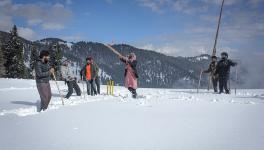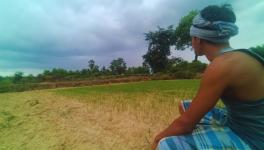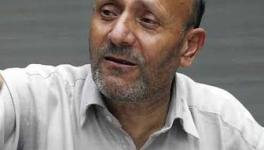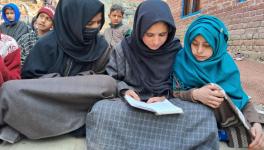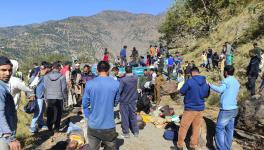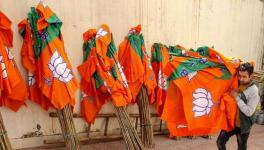Elections 2019: Villagers in Rajpora Still Await Clean Water Promised by PDP
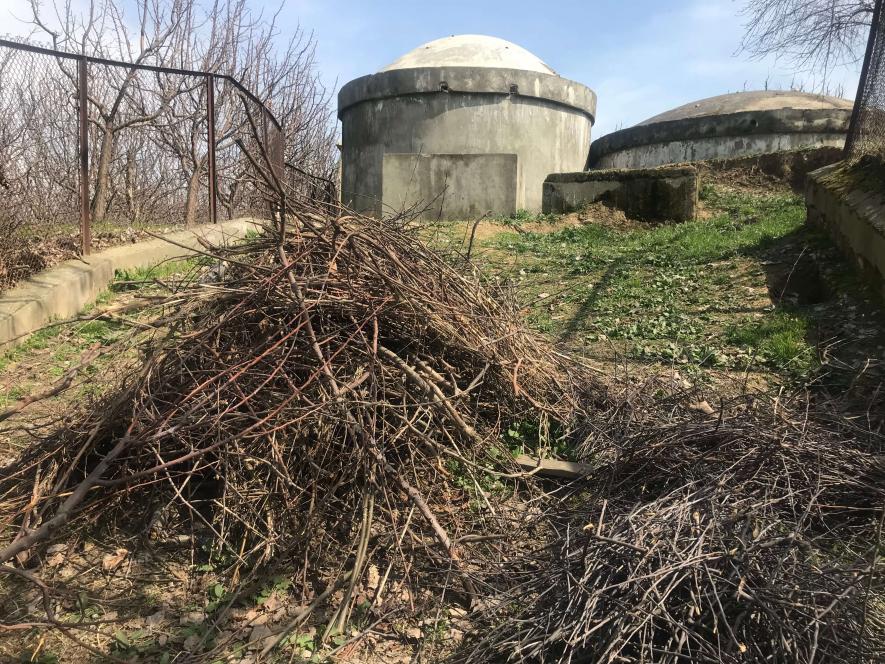
Water plant at Shnagarpora Turned into Cowshed. (Photo courtesy Zubair Sofi)
(This is Part 2 of this story. Read Part 1.)
Kashmir is famous for its water bodies. The valley has many water resources by which it is able to generate hundreds of kilo watts of electricity.
Village Shadimarg, 30 kilometres away from Dogripora falls in the Rajpora constituency where supply of drinking water has remained a dream.
Since the past 40 years, villagers of Shadimarg and many other villages are utilising muddy water for domestic and personal use directly from Yeeari canal.
Due to lack of a water filtration plant, villagers do not get clean drinking water. To campaign for the 2014 election, former Finance Minister and People’s Democratic Party MLA Haseeb Drabu, who won from the Rajpora constituency, would make frequent visits to different villages. When he asked for their votes to “see the change”, people voted for him in the hope of getting their problems solved.
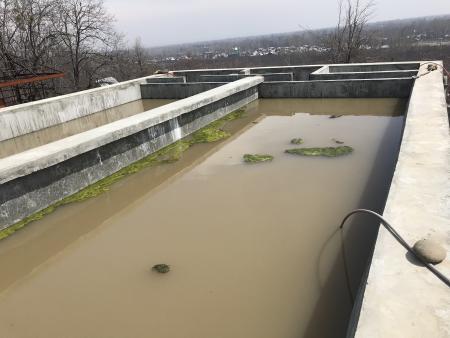
Polluted water in tanks of Shadimarg Water Plant. (Photo courtesy Zubair Sofi)
In 2014, Drabu won by 18,013 votes, and soon after taking over as state Finance Minister , he sanctioned a water treatment plant at Shadimarg, for which 0.25 acres and Rs 6 crore were granted. The land is located at Zawur village, situated on a plateau, due to the height required for the treatment plant.
Even after land allotment, construction didn’t start for months. It was only after multiple visits to the deputy commissioner’s office and Drabu’s residence, which is located in one if the posh areas of Kashmir, Gogjibagh Srinagar, that eventually the construction started.
However, slow construction and manipulation of the granted amount delayed the work, leaving villagers to keep fetching water from the canal. Finally, in 2017, the structure was partially completed but the villagers were not able to get water from the canal due to poor water flow.
Once again, the villagers said they complained to the deputy commissioner. But, due to pressure from the villagers, instead of resuming work at the plant, the Public Health Engineering department started distribution from the water plant. This, say villagers, was illegal, as there was no order to distribute the water from the plant.
Mohammad Yousuf Parray, 48, is a Public Health Engineering (PHE) department employee and the lone employee in the radius of 18 kilometres. He takes care of almost four water pump-sheds alone.
“There are many important things yet to be placed in the filtration plant. We are distributing water due to public pressure. No doubt the water is dirty, so we have advised people to boil it before use,” said Parra.
Haneefa Bano, 50, who lives a few metres away from the plant, says there is no use of the plant, as the PHE deparmtent is not able to generate filtered water.
“We use plant’s water to maintain our kitchen garden. We have to climb steep slopes to get the water for domestic purpose from the canal,” she said.
There is no proper enclosure for the water treatment plant and anyone can fall into the deep concrete tanks. “We asked the PHE department to provide fencing, but they haven’t paid any heed. At least three cows belonging to the villagers died after falling into the tanks,” addd Haneefa.
The water treatment plant was built to provide water at least to three major villages of Shadimarg with a population of almost four lakh.
Eight kilometres from Shadimarg, lies Shangarpora, the last village of Pulwama from the East, which shares the same tale of sufferings. The village comprises smaller villages namely Kangan and Dadoora, with a combined population of almost 9,500.
In 2002, when PDP was in power, the then MLA from Rajpora, Syed Bashir Ahmad Shah, made promises that were never fulfilled, say some vllagers.
Abdul Majid Yatoo, 47, who was once a hard core PDP supporter, says in 2002, when the valley was settling down after the huge jolts of militancy, he worked for Shah and sought votes for in the three villages for development of the area.
Shah won by 13,946 votes, but the main problems of the villagers -- roads, electricity, water, and a sanatorium that Shah promised to provide – remain unaddressed. But, a water treatment plant was allotted to Shangarpora.
“This decision impressed everyone in the village, we all hoped for the transformation of the village but that was not the case,” said Yatoo.
Transportation of construction material for the plant led to the creation of a road which is still a dirty road. Around Rs 3 crore were sanctioned for the plant then.
Frequent visits by Shah soon turned rare. Although the plant’s structure was built in the village, it is still not functioning, and has now turned into a cowshed and hay store.
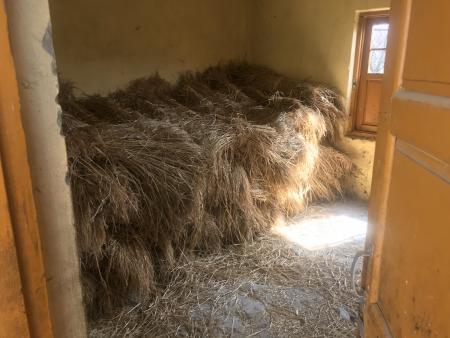
Building of Shangarpora Water Plant used as Hay store. (Photo courtesy Zubair Sofi.)
People of the villages now use water of the Romash canal that flows parallel to the village. But, the canal bund is damaged leading to water overflows, but no one has addressed this issue.
“From deputy commissioner to politicians, we took our problems to everyone, but no one paid heed,” said Yatoo, adding that “every villager was a well-wisher of PDP, but their false promises have turned people against them. Every politician is the same for us,” he added.
Even after 17 years, there is no change in these villages, which remain without a hospital. Drinking water and electricity is available but only for an hour , twice a day.
Gowhar Geelani, a political analyst, said PDP’s mandate was to resolve issues related to governance, administration, roads, water electricity etc., “On that front, PDP has failed,” he said.
“The biggest setback PDP had to face was primarily because of its promise to voters during the 2014 elections that it would not join hands with Hindu nationalist Bharatiya Janta Party, and that it would represent Kashmir’s political aspirations and also safeguard their anxiety related to the existential crisis and threats on status of J&K,” Geelani said.
Get the latest reports & analysis with people's perspective on Protests, movements & deep analytical videos, discussions of the current affairs in your Telegram app. Subscribe to NewsClick's Telegram channel & get Real-Time updates on stories, as they get published on our website.











